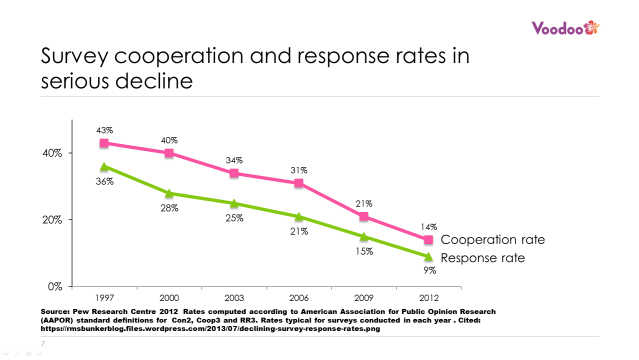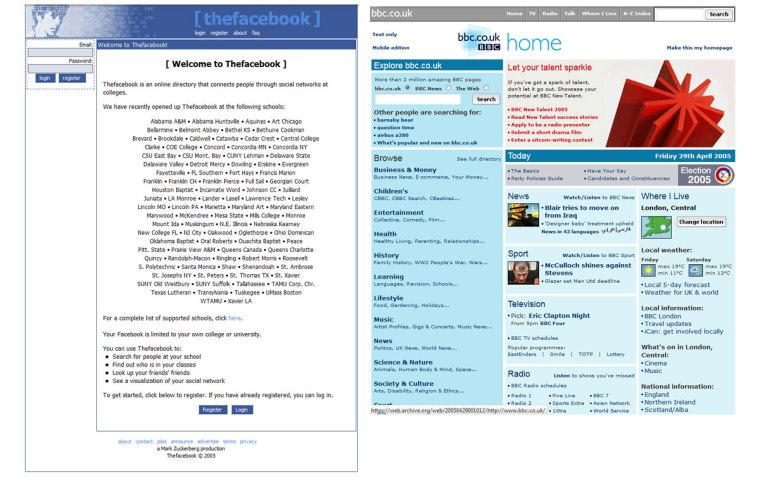The number of people willing to participate in surveys is falling. The problem is not new* but it is now critical. The Pew Research Centre reports a four-fold decline in response rates between 1997 and 2012.
Why?
Long-term social trends, a decline in deference and a corresponding diminished sense of obligation, have played a part. Increasingly, people know their opinions have a value: they are less inclined to give them away freely.
But the main driver is the shift of surveys online. Online, respondents are notionally more accessible: in reality they are more elusive. The competition for their attention is intense. And the mobile internet is intensifying this challenge.
Mix in the dramatic rise in the number of surveys out there and it is clear that we are operating in a very competitive, buyers’ market.
The survey time-warp
Faced with this challenge the standard industry response has been to… change virtually nothing. Most surveys look, feel and behave like they did over a decade ago. How would Facebook or the BBC be doing if they had stuck with their 2005 looks?

Winning attention
The standard survey requires a radical rethink. It must put respondents first and:
- keep them engaged
- make things intuitive
- listen
- be more visual, less verbal
- do things differently
It does work. It is what we at Voodoo do. (We have thousands of unsolicited testimonials.)
In May we conducted a test in conjunction with a client†. Half the sample participated in a standard survey, the other half a Voodoo one. The sample (670 respondents) was robust. The surveys ended with a series of questions about the survey experience. The results demonstrated the power of doing things the Voodoo way:
- survey ‘enjoyment’ tripled from 25% to 74%
- ‘thinking deeply’ doubled from 21% to 42%
- ‘definitely will participate’ more than tripled – from 9% to 29%.
- The Voodoo survey also delivered significantly longer meaningful responses (up to 81% more) to open-ended questions.
The client, The Caravan Club, has switched to Voodoo. Viv Harrison, insight head said, “our new members much preferred the Headlights (Voodoo) survey, and were warmer to taking part in future research as a result”.
We can compete
Declining survey participation is not inevitable. Researchers can win back attention.
We love Headlights®, our proprietary survey software. Nonetheless, it is the thinking behind it, the focus on respondents, that makes it so powerful.
To find out more or explore these issues further contact Vaughan Flood or Luke Cadman.
